
XTC were an English rock band formed in Swindon in 1972. Fronted by songwriters Andy Partridge and Colin Moulding, the band gained popularity during the rise of punk and new wave in the 1970s, later playing in a variety of styles that ranged from angular guitar riffs to elaborately arranged pop. Partly because the group did not fit into contemporary trends, they achieved only sporadic commercial success in the UK and US, but attracted a considerable cult following. They have since been recognised for their influence on post-punk, Britpop and later power pop acts.

Andrew John Partridge is an English singer, songwriter, and record producer who founded the rock band XTC. He and Colin Moulding each acted as a songwriter and frontman for XTC, with Partridge writing and singing about two-thirds of the group's material. While the band were a formative punk group, Partridge's music drew heavily from 1960s songwriters, and his style gradually shifted to more traditional pop, often with pastoral themes. The band's only UK top 10 hit, "Senses Working Overtime" (1982), was written by Partridge.
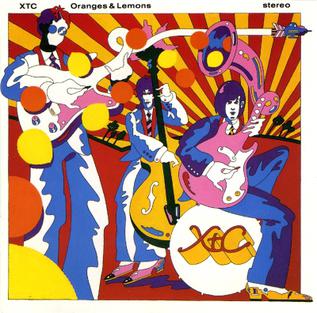
Oranges & Lemons is the 11th studio album and the second double album by the English band XTC, released 27 February 1989 on Virgin Records. It is the follow-up to 1986's Skylarking. The title was chosen in reference to the band's poor financial standing at the time, while the music is characterised as a 1980s update of 1960s psychedelia. It received critical acclaim and became the band's highest-charting album since 1982's English Settlement, rising to number 28 in the UK and number 44 in the US.

Black Sea is the fourth studio album by the English rock band XTC, released 12 September 1980 on Virgin Records. It is the follow-up to the previous year's Drums and Wires, building upon its focus on guitars and expansive-sounding drums, but with more economical arrangements written with the band's subsequent concert performances in mind, avoiding overdubs unless they could be performed live.

Nonsuch is the 12th studio album by the English band XTC, released 27 April 1992 on Virgin Records. The follow-up to Oranges & Lemons (1989), Nonsuch is a relatively less immediate and more restrained sounding album, carrying the band's psychedelic influences into new musical styles, and displaying a particular interest in orchestral arrangements. The LP received critical acclaim, charted at number 28 in the UK Albums Chart, and number 97 on the US Billboard 200, as well as topping Rolling Stone's College album chart.
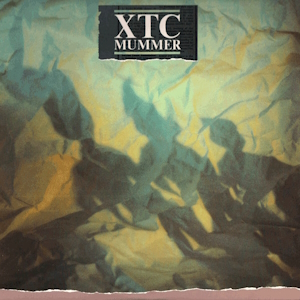
Mummer is the sixth studio album by the English rock band XTC, released on 30 August 1983.
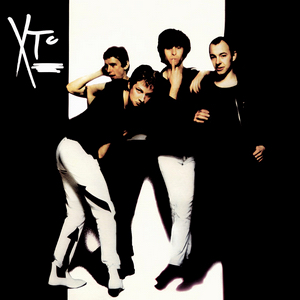
White Music is the first studio album by the English band XTC, released on 20 January 1978. It was the follow-up to their debut, 3D EP, released three months earlier. White Music reached No. 38 in the UK Albums Chart and spawned the single "Statue of Liberty", which was banned by the BBC for the lyric "In my fantasy I sail beneath your skirt". In April 1978, the group rerecorded "This Is Pop" as their third single.

Drums and Wires is the third studio album by the English rock band XTC, released in 1979 on Virgin Records. It is a more pop-oriented affair than the band's previous, Go 2 (1978), and was named for its emphasis on guitars ("wires") and expansive-sounding drums. The album was their first issued in the United States and their first recorded with guitarist Dave Gregory, who had replaced keyboardist Barry Andrews earlier in 1979. It features a mix of pop, art rock, new wave and punk styles with much rhythmic interplay between XTC's two guitarists.
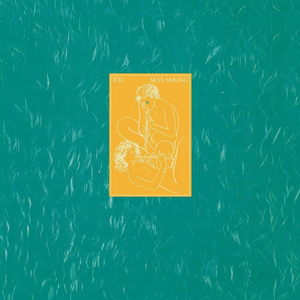
Skylarking is the ninth studio album by the English rock band XTC, released 27 October 1986 on Virgin Records. Produced by American musician Todd Rundgren, it is a loose concept album about a nonspecific cycle, such as a day, a year, the seasons, or a life. The title refers to a type of bird (skylark), as well as the Royal Navy term "skylarking", which means "fooling around". It became one of XTC's best-known albums and is generally regarded as their finest work.

Apple Venus Volume 1 is the 13th studio album by the English rock band XTC, released in February 1999. It was the first on the band's own Idea Records label through Cooking Vinyl and distributed in the United States by TVT Records. The album relies heavily on strings, acoustic guitars and keyboards, expanding upon the more orchestral approach developed on the group's previous LP Nonsuch (1992). Apple Venus Volume 1 was met with critical acclaim and moderate sales, peaking at number 42 on the UK Albums Chart and number 106 on the US Billboard 200.
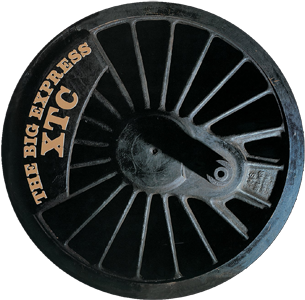
The Big Express is the seventh studio album by English rock band XTC, released on 15 October 1984 by Virgin Records. It is an autobiographical concept album inspired by the band's hometown of Swindon and its railway system, the Swindon Works. In comparison to its predecessor Mummer (1983), which had a modest, pastoral approach to production, the album features a bright, uptempo sound marked by studio experimentation and denser arrangements, setting a template that they further developed on subsequent albums.
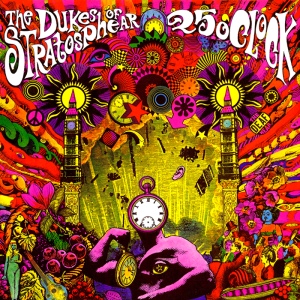
25 O'Clock is the debut record by English rock band the Dukes of Stratosphear and the eighth studio album by XTC, released on April Fools Day 1985 through Virgin Records. It was publicised as a long-lost collection of recordings by a late 1960s group, but actually consisted of new tracks recorded by Andy Partridge, Colin Moulding, and Dave Gregory of XTC with Gregory's brother Ian.

"Senses Working Overtime" is a song written by Andy Partridge of the English rock band XTC, released as the lead single from their 1982 album English Settlement. He based the song on Manfred Mann's "5-4-3-2-1" (1964). The album and single became the highest-charting records XTC would ever have in the UK, peaking at number five and number 10, respectively.

"Making Plans for Nigel" is a song by the English rock band XTC that was released as the opening track and lead single from their 1979 album Drums and Wires, by Virgin Records. It was written by Colin Moulding, the band's bassist. The lyrics are told from the point of view of parents who are certain that their son Nigel is "happy in his world", affirming that his future in British Steel "is as good as sealed", and that he "likes to speak and loves to be spoken to."
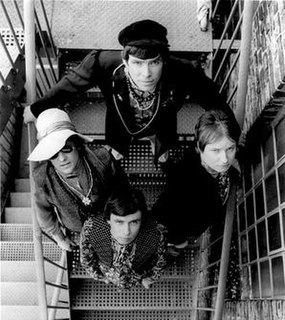
The Dukes of Stratosphear were an English rock band formed in 1984 by Andy Partridge, Colin Moulding, Dave Gregory, and Ian Gregory. Modelled after psychedelic pop groups from the 1960s, the Dukes were initially publicised by Virgin Records as a mysterious new act, but were actually an XTC spin-off band. They recorded only two albums: 25 O'Clock (1985) and Psonic Psunspot (1987). In the UK, the records outsold XTC's then-current albums The Big Express (1984) and Skylarking (1986).

"The Disappointed" is a song written by Andy Partridge of the English rock band XTC and released as the lead single from their 1992 album Nonsuch. According to Partridge: the lyrics are about people who have been turned down romantically and come together to form an organisation "of the disappointed." It was originally inspired by Argentina's Mothers of the Disappeared. The music video was directed by a relative of Ranulph Fiennes. A home demo of the song was later released on Coat of Many Cupboards (2002).
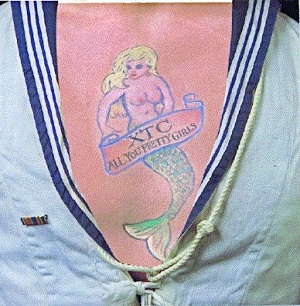
"All You Pretty Girls" is a song written by Andy Partridge of the English rock band XTC, released on their 1984 album The Big Express. It peaked at number 55 on the UK Singles Chart, and its music video cost £33,000 to make. Partridge remembers that song came about while he was "dicking around, playing some Hendrix. ... I was just playing this little two-note, quasi-Hendrix thing, and I liked the inherent melody in it."

"Easter Theatre" is a song written by Andy Partridge of the English rock band XTC, released as the lead single from their 1999 album Apple Venus Volume 1. According to Partridge, the lyrics were an attempt to match a "muddy" ascending chord progression. "There's the little melodic figure at the beginning, which I thought sounded medieval and earthy, combined with placid, droning high keyboard chords, which sound like you're floating—so it suggested floating over a land."

"Seagulls Screaming Kiss Her Kiss Her" is a song written by Andy Partridge of the English rock band XTC, released on their 1984 album The Big Express. Composed on a Mellotron using only three fingers, it was the first song he wrote on a keyboard instrument. The lyrics were inspired by Erica Wexler, a fan who caused tensions with Partridge's then-wife. After his divorce, Partridge married Wexler in the 1990s. Japanese band Seagull Screaming Kiss Her Kiss Her named themselves after the song.
"Thanks for Christmas" is a song by the English band XTC, credited as "the Three Wise Men" and written by Andy Partridge It was released by Virgin Records in late 1983 as a holiday single backed with "Countdown to Christmas Party Time". The song made its first album appearance on the 1990 compilation album Rag and Bone Buffet: Rare Cuts and Leftovers.



















